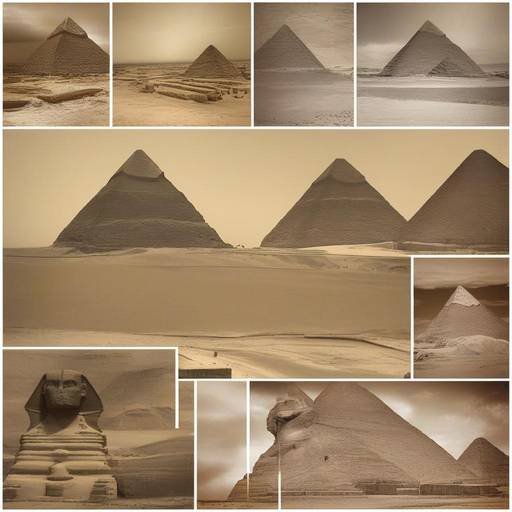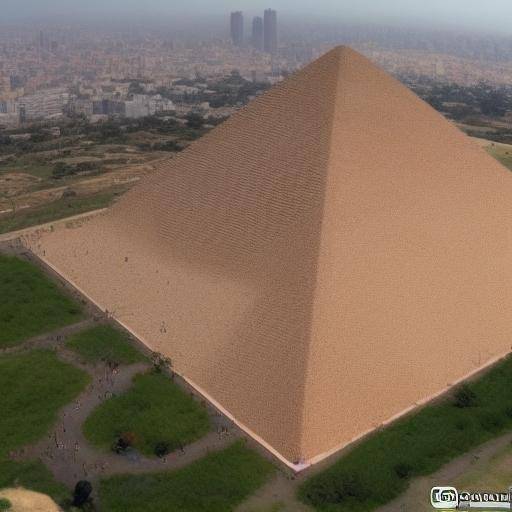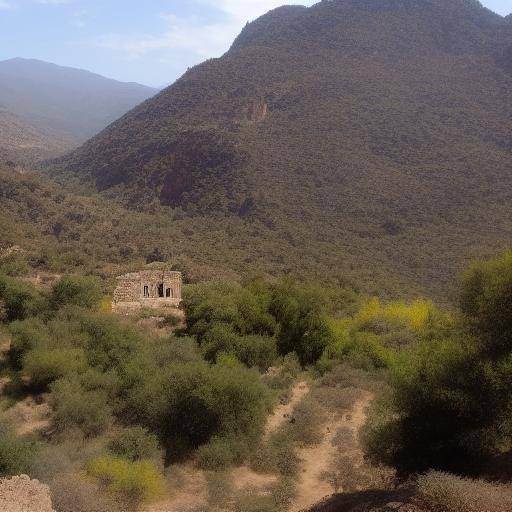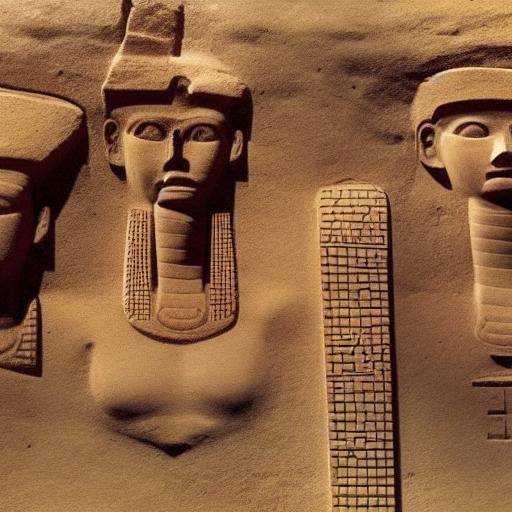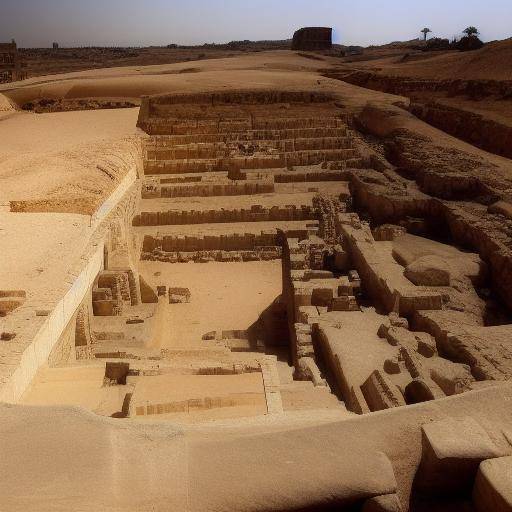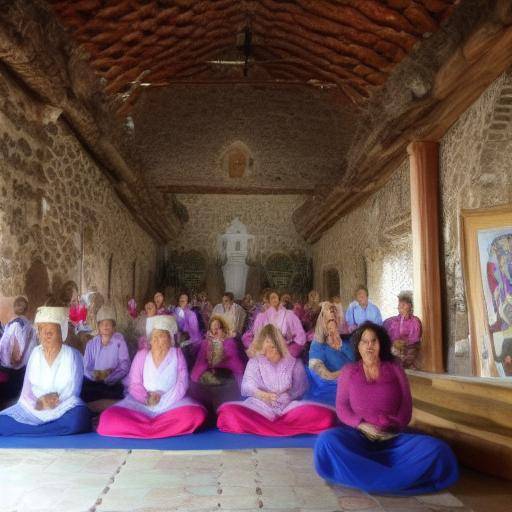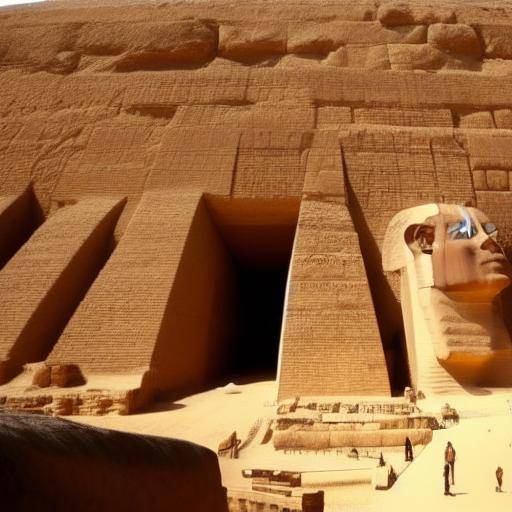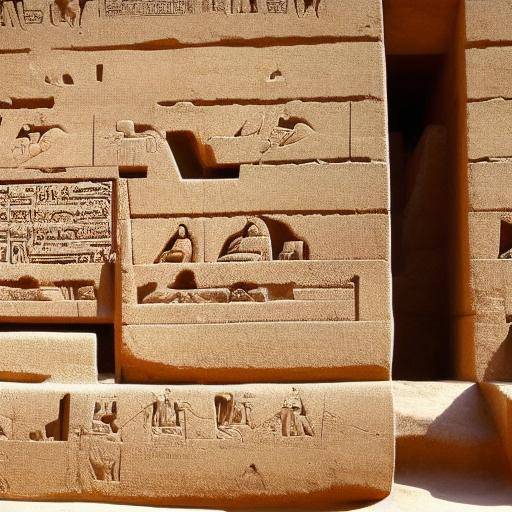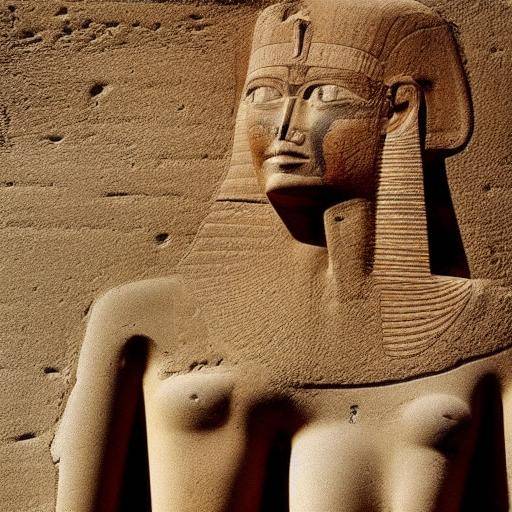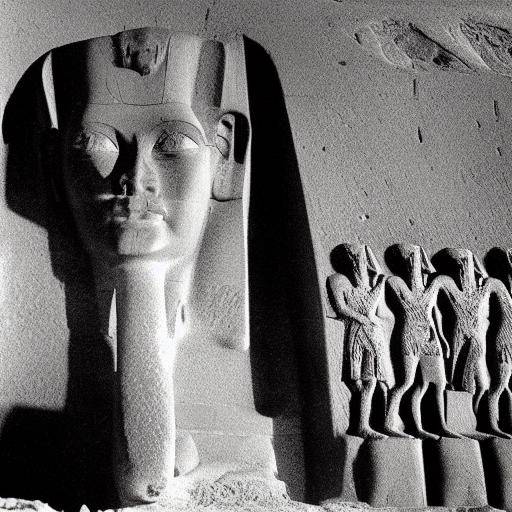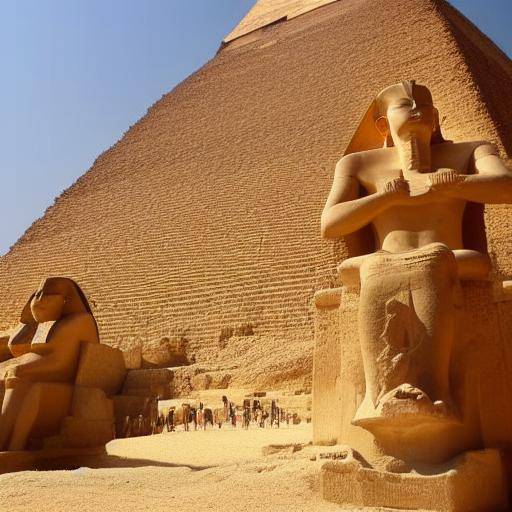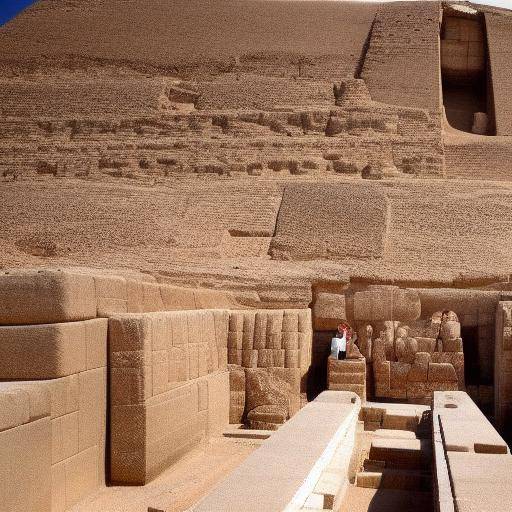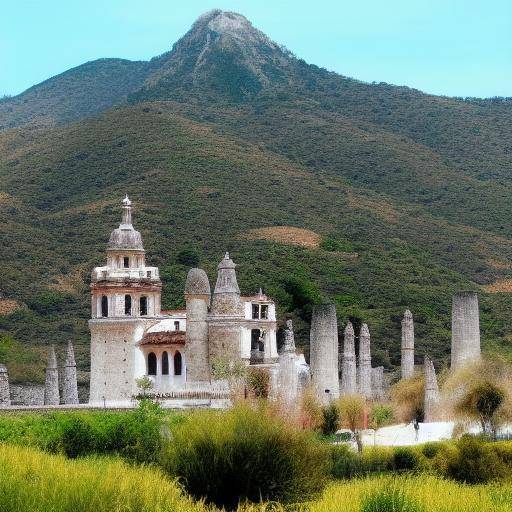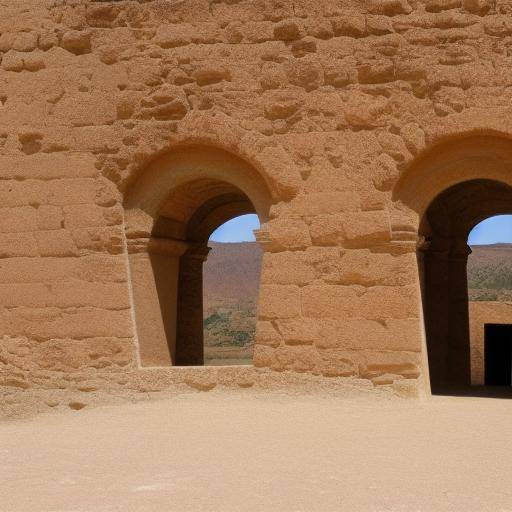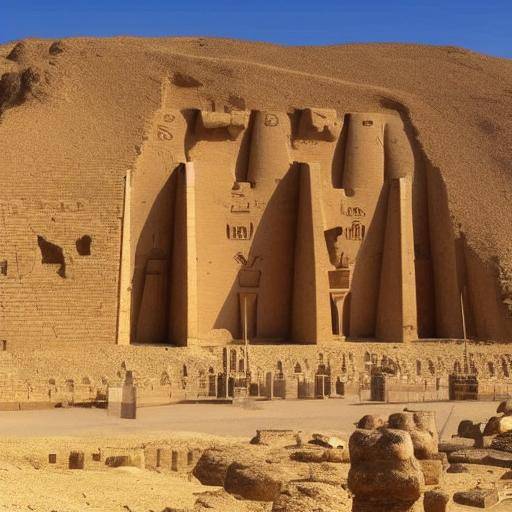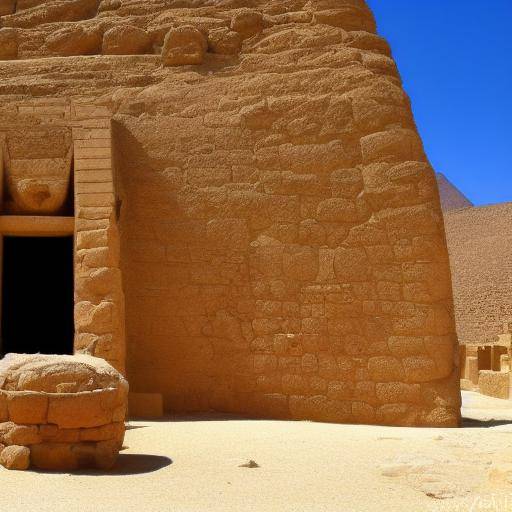
The Valley of the Kings, located in Egypt, is an archaeological jewel that houses secrets and treasures of the ancient Egyptian royalty. This historic enclave is witness to the greatness and glory of a millennial civilization that has fascinated the world for centuries. In this article, we will explore in depth the Valley of the Kings, its historical relevance, its archaeological wonders, and the importance of Egyptian archaeology in the understanding of the ancient civilization of the Nile.
Introduction
The Valley of the Kings, known as the burial site of numerous Pharaohs of ancient Egypt, is an emblematic place full of history, mystery and beauty. In this article, we will immerse ourselves in the greatness of this archaeological site, exploring its importance in the understanding of the ancient Egyptian royalty, as well as its relevance in the field of archaeology. We will discover how this valley has revealed invaluable treasures and how its study continues to shed light on the life, beliefs and traditions of one of the most fascinating civilizations in history.
History and Background
The Valley of the Kings, located on the west bank of the Nile River, near the ancient city of Thebes (today Luxor), was the place chosen by the Pharaohs of the New Kingdom to build their graves. This enclave, which dates back to the 16th century BC, houses richly decorated tombs full of art and hieroglyphics that narrate the religious beliefs and the worldview of the time. This funeral site was meticulously planned and is a testimony to the importance that the ancient Egyptians attached to life after death.
Historical importance
The Valley of the Kings plays a crucial role in understanding the social and religious structure of ancient Egypt. The tombs, adorned with exquisite paintings and engravings, provide invaluable information on religious beliefs, mythology and the daily life of the royalty of that time. Moreover, this archaeological enclave serves as a tangible legacy of the greatness of the Pharaohs and their belief in eternal life.
Evolution of the Site
Over the centuries, the Valley of the Kings has been subjected to intensive study and research by archaeologists, Egyptologists and antiquities experts. The discovery of new graves, the restoration of artifacts and the advances in dating techniques have allowed an ever deeper understanding of this intriguing place. The evolution of archaeological theories and methods has significantly contributed to unraveling the mysteries buried in this ancestral valley.
Analysis in Deep
The study of the Valley of the Kings and the Egyptian archaeology entails great challenges, but also provides valuable knowledge about the culture and traditions of ancient Egyptian civilization.
Benefits and Challenges
Exploration and excavation in the Valley of the Kings have not only generated important historical knowledge, but also represented a logistical and conservation challenge. Limited access to the tombs, the preservation of the delicate murals and the sustainable conservation of this heritage have been constant challenges for archaeology experts. However, the benefits of preserving and studying this site are incalculable, as they provide a unique window to the past.
Current trends
Egyptian archaeology has experienced a resurgence in recent years, with significant advances in technology, excavation and conservation. The most precise dating methods, the use of drones for air exploration, and the use of non-invasive techniques are revolutionizing the way in which the archaeological treasures of Egypt are studied and preserved. International collaboration and knowledge-sharing have also significantly enriched research in this field.
Comprehensive review
The understanding of the Valley of the Kings, Egyptian archaeology and its historical relevance represents an area of multidisciplinary study covering anthropology, history, architecture and heritage conservation. Deeply exploring these areas provides a more comprehensive and enriching view of the cultural wealth and historical legacy of an extraordinary people.
Applications and Best Practices
The study of the Valley of the Kings offers valuable lessons on the preservation of archaeological heritage and the importance of its contextual interpretation. Best practices in archaeology, management of heritage sites
cultural and sustainable tourism are fundamental to guarantee the integrity of this and other archaeological sites.
Opinions of Experts and Industry
Experts on archaeology, egyptology and heritage conservation offer specialized visions that enrich the understanding of the Valley of the Kings and its relevance in Egyptian archaeology. Their perspectives help to enrich the assessment of the challenges and opportunities in the research and preservation of historical sites.
Comparative perspectives
To compare the Valley of the Kings with other archaeological sites in Egypt and worldwide, it can identify similarities, differences and patterns that enrich our understanding of the cultural and social context in which these ancient civilizations arose. This comparison provides a broader view of archaeology and its role in understanding human history.
Practical Tips and Accessible Tips
For those interested in exploring the Valley of the Kings and Egyptian archaeology, here we offer you some practical tips to get the most out of this unique experience.
- Plan your visit in advance, considering the best season to avoid crowds and enjoy the weather.
- Hire a certified tour guide that can provide you with detailed and contextualized information about the Valley of the Kings and its historical importance.
- It respects the conservation regulations and does not touch or approach the murals and exhibits, as human contact can irreparably damage these archaeological treasures.
Conclusions and FAQs
Conclusions
The Valley of the Kings represents an invaluable legacy that, thanks to Egyptian archaeology, continues to reveal secrets buried for millennia. Its historical importance and its impact on our understanding of ancient Egypt make it a must for those interested in the cultural and archaeological richness of this mythical civilization.
Frequently asked questions
1. Why is it important for archaeology the Valley of the Kings?
The Valley of the Kings is crucial for archaeology as it houses the graves of important Pharaohs of ancient Egypt, which provides a unique window to the life, religious beliefs and traditions of that time.
2. What are the greatest challenges in preserving the Valley of the Kings?
The greatest challenges include the conservation of the delicate murals and the sustainable management of tourism to protect the site from possible damage.
3. What is the excavation process in the Valley of the Kings?
The excavation process involves careful removal of layers of land and debris to reveal the structures and buried treasures, followed by a thorough record and study of each finding.
4. What impact does Egyptian archaeology have on cultural tourism?
Egyptian archaeology plays a crucial role in cultural tourism, attracting visitors interested in knowing the country's historical and cultural treasures.
5. Is access allowed to all graves in the Valley of the Kings?
No, access to some graves may be restricted for conservation reasons, allowing the preservation of the murals and objects within them.
6. How can I contribute to the preservation of the Valley of the Kings?
You can contribute to the preservation of the Valley of the Kings being respectful during your visit, following the conservation regulations, and promoting sustainable and conscious tourism of its impact on archaeological heritage.
Concluding, the Valley of the Kings in Egypt remains a fascinating enigma that connects us with the greatness and belief in the eternity of the ancient Egyptian royalty. Archaeology, which plays a crucial role in its study and preservation, is the bridge that allows us to achieve a deeper understanding of this historical wonder. By knowing the cultural, historical and archaeological importance of this enclave, we can appreciate its value as a universal treasure and as a legacy that deserves to be cared for and protected for future generations.

